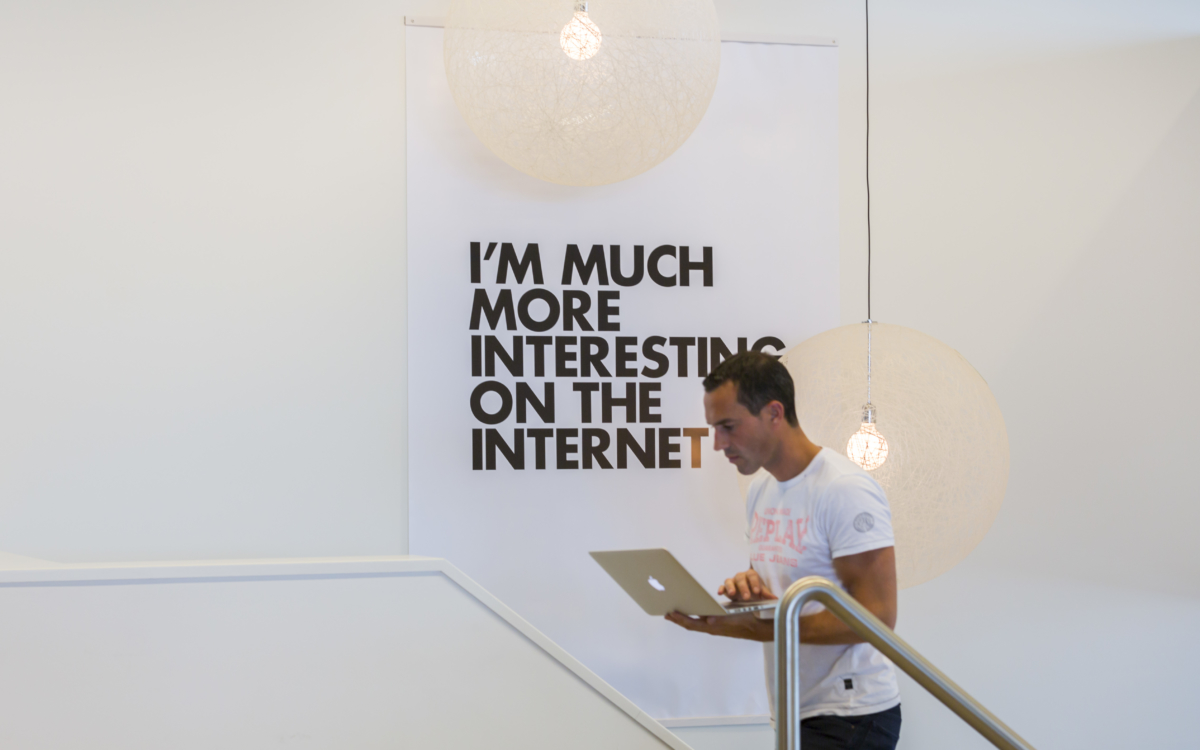By now, influencers are a well-known part of marketing strategy. Most of us are very familiar with influencers on Instagram who market products like skincare, travel destinations or clothes. But it doesn’t stop there. Internal influencers can mean a great deal for your company. These internal influencers, or so-called ambassadors, are quite important for several reasons: to help humanise the brand and build a relationship with a brand’s audience through both social media and the physical world.
What is internal influencer marketing?
Influencer marketing can be divided into two areas: external (the well-known Instagram influencers) and internal influencers (ambassadors). Although they are both influencers, they’re worlds apart. They both have a different approach and a different goal. External influencers want you to buy specific products as they get paid for by brands, whereas internal influencers are mostly neutral. They’re more likely to be seen as genuine lovers of a certain brand. Think of customers who buy many products from a company and want to spread the word. Or employees who are very happy with the organisation they work for and feel the need to share that.
The question remains: why would you need these ambassadors for your company? Let’s take the example of happy employees: it’s proven that when you love your job, you’re better at it. And as most of us spend around 40 hours per week in the office, CEOs value happy, hard-working employees. In the end, they are the ones telling others about the company, which can make valuable professionals interested in a future career with your organisation. Think of your happy employees as internal influencers that can help you improve your brand image.
Change from the inside
Of course, at every company, there are people unsatisfied with their position or impact. You might not be able to convince all of the pessimists, but what you can do is find the people who are working their dream job and connect them to those who are having a hard time. That way, the ‘influencers’ can help people who do not feel included by making them feel part of the team. For example, influencers can invite a more diverse team to team building activities, or give employees a voice by asking them what they would change in the office. Internal Communications, HR or Management should identify the internally influential people within the company. They could encourage them to become ambassadors in a way that benefits the company and its culture as well. After all, the big bosses aren’t the only influencers out there.
If you’re keen on changing employee behaviour for the better, internal influencers are the way to go. After all, what makes you change your habits or try new things? Probably a recommendation by someone you know and trust. Happy employees are closer to their colleagues than higher placed managers and therefore feel more approachable and trustworthy. Moreover, CEOs tend to focus on their internal business and product centricity. They can forget to listen to what the majority of their employees are interested in. They can be removed from what happens on the work floor with its day-to-day struggles. Listening to your employees should be an important part of everyday management.
However, working with internal influencers is about working with different types of people. So it’s important to understand that every new influencer needs an individual approach to promote the brand. There is no right or wrong, it just has to feel genuine and natural. Also, don’t underestimate the power of peer-to-peer recommendations: have your ambassadors share ideas, products, cases and other business related developments.
Influencing internally, externally
Using influencers to enhance overall happiness within the company is one way to go about it. The other way is to naturally open up to the outside world. Let your ambassadors share their work lives with their friends and followers via their social media platforms. This way, it’s more likely to reach other professionals and to introduce them to new exciting opportunities and showcase the culture of your company.
Through social media and word of mouth marketing, employees can actually sell a job, a company or a freelance workspace by just throwing an opinion out there. This works the same as when your neighbour, who you really like and trust, tells you that this new vacuum cleaner is the best and absolutely worth the money. You would believe them, right? What if you saw the same brand advertise their new vacuum cleaner on TV with a slick and shiny commercial? Good chance you’ll keep changing the channels and never think about it again. The same goes for a lot of marketing efforts that come across as too ‘salesy’. How well your company message is perceived depends on how you make your audience feel. It is more about emotions than how visually sleek your story is.
Recognise employees as influencers
The real strength of any influencer that is willing to spread the word lies in how they can connect with other professionals and colleagues. Make sure they are present at internal and external events, represent the company, share their experiences and keep pushing the brand. Take the time to carefully select who can function as inspiring ambassador in their own way.
In the end, this kind of influencing will help companies humanise their brand and build a relationship with their audience through social media in addition to the physical world. When a company preaches to its own choir, it will lose in the long run and will not reach a new audience. Sometimes you just need peer endorsement credibility, with the help of few ‘undercover influencers’, to improve your brand from the inside out.
More Insights?
View all InsightsQuestions?
Team Lead Marketing NL





